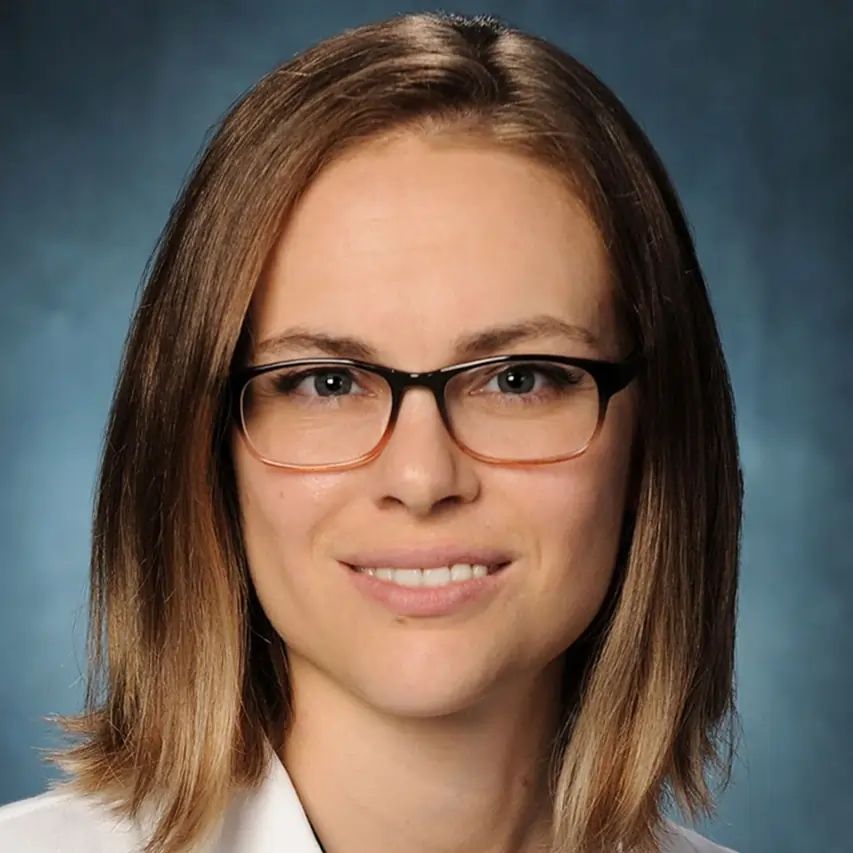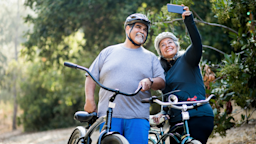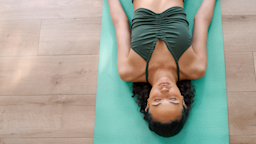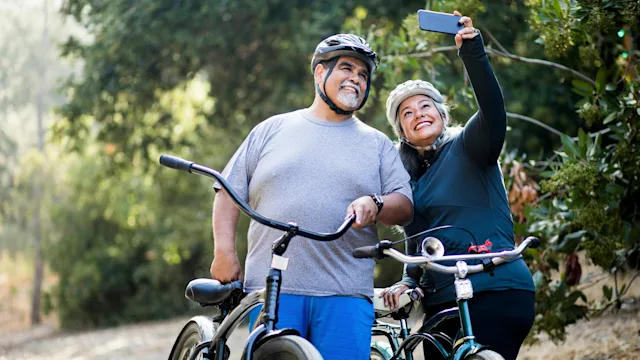Key takeaways:
Chrissy King, author of “The Body Liberation Project,” spent the first decades of her life obsessed with losing weight.
Through powerlifting and reading about body liberation, she learned to celebrate what her body could do rather than focusing on its “imperfections.”
Now, Chrissy spreads the message that all bodies are worthy of acceptance and respect.
Focusing on fitness didn’t always lead Chrissy King to body liberation — a feeling of self-worth about her body.
For many years, it just gave her more anxiety and insecurity. It was only after she took up powerlifting and learned about the body positivity movement that she started to celebrate her body for all it could do and stopped obsessing about its so-called “imperfections.”


It’s an experience she shares in her new book, “The Body Liberation Project,” which is about understanding racism and diet culture.
The problem was her body image, not her body
Growing up in the suburbs in Wisconsin, Chrissy was the only Black girl in her class. Early on, she says, she got the message that being thin would help her fit in and be accepted.
“I have this vivid memory of being in the grocery store and seeing a magazine with Pamela Anderson on the cover,” Chrissy recalls. “I remember thinking, ‘Wow, that’s so amazing. Who wouldn’t want to be called the most beautiful woman in the world?’ And I remember thinking, ‘Well, I can’t be blonde. I’m never going to have blue eyes, but maybe I can be skinny. That’s my way to access beauty.’”
This feeling followed Chrissy into young adulthood. After years of yo-yo dieting, she joined her first gym in her twenties. She told her personal trainer she just wanted to be skinny. The trainer told her to severely cut calories and suggested lifting weights. Chrissy resisted weight training at first, but eventually took the woman’s advice. The trainer was slim and lifted weights, so Chrissy figured she must know what she’s talking about.
The resistance workouts began to strengthen Chrissy’s body, but didn’t change her mindset. Eventually, after switching to another gym (and ditching crazy calorie restrictions) she got into powerlifting — a sport where you compete to lift huge weights. She even became a fitness coach herself. Still, her body insecurities continued.
“I was in my strongest and leanest body that I had been in as an adult, but I realized I had a worse relationship with food in a lot of ways. I didn’t want to go hang out with my friends because that meant I couldn’t control exactly what I ate. Going on vacation gave me anxiety because I couldn’t plan everything,” she says.
“I never felt a sense of satisfaction. I would reach this quote ‘goal weight,’ and then I’d be like, ‘Oh, just find more pounds’ or ‘Change this part of my body.’”
Read more like this
Explore these related articles, suggested for readers like you.
Realizing she needed to try something new, Chrissy had a lightbulb moment. “I was like, the problem is not my body. It is actually my relationship with body image. And that’s what led me down the road of healing my relationship with my own body image,” she says.
Her path toward body liberation had begun.
The difference between body positivity and body liberation
“The first thing I gravitated to online was the body positivity space,” Chrissy says.
Body positivity teaches that all bodies are worthy of respect, no matter their shape or size. It emphasizes loving the body you’re in. This message started to shift Chrissy’s thinking. She started reading more about diet culture and racism and the idea that no one should feel their body isn’t good enough.
“The thing that a lot of people don’t know is that the body positivity space started out as the fat acceptance movement of the 1960s, and it was founded by fat Black and brown women because they didn’t see themselves represented within mainstream society. It was heavily rooted in social justice,” Chrissy explains.
“There’s a real distinction between having a personal body image issue — ‘I don’t like my cellulite,’ for example — versus living in a body that’s systematically oppressed because of the way you are.”
This was the final puzzle piece for Chrissy. Not only did she learn to love her body, but she also committed to spreading the message that everyone should feel safe and empowered in their own body, no matter their size, race, or ability status.
As Chrissy’s mindset changed, so did her habits.
“The first thing I did was I stopped tracking everything I ate,” she says. “That was just draining me energetically. Instead of going to the gym 7 days a week, I’m going to go to the gym 6 days a week. I’m going to put creamer in my coffee. That was such a big deal for me at the time.”
Chrissy says she was learning to see her body as the vessel for her life, not something she needed to perfect.
Advice for those on the path to body liberation
Chrissy, who is now 38 and lives in Brooklyn, offers three pieces of advice to anyone who is just starting out on their own journey toward body liberation:
Practice self-compassion. The first step in shifting your relationship with your body is to accept you are struggling and show yourself compassion, she says. “What happens often times is that you’re like, ‘I just want to feel better about myself, but I can’t, and I feel bad about that,’” Chrissy observes.
Clean up your spaces. You don’t have to listen to negative messages about your body, Chrissy says. “How can we work to be mindful of the content we’re consuming?” she asks. If you’re following folks on social media who make you feel bad, unfollow them, she says, or just spend less time on social media altogether.
Start small. “Instead of thinking, ‘I need to do this complete overhaul,’ what are one to three really simple, accessible things that I can do for myself that I can actually commit to? It can be as simple as taking a 15-minute walk once a day, drinking more water, trying to get more sleep,” Chrissy says. Anything that helps you feel good in your body is a step in the right direction, she says. Doable beats extreme.
Chrissy understands that embracing body liberation can be a long and bumpy road.
“I think body positivity makes it seem like we’re all just like, ‘I love myself every day.’ That's not true,” she says. “I don’t think there’s anybody who doesn’t wake up and have negative feelings sometimes. Even as a person who wrote an entire book on body liberation, I still have those days,” she confesses.
But the more you learn to see your body as a gift to celebrate rather than a source of anxiety or shame, the further along you are, she says.
“We spend all this time and energy obsessing about the way we look instead of just appreciating that we are here having this experience,” Chrissy says.
“At our funeral, no one’s going to be like, ‘I remember that summer when she had six-pack abs.’ They’re going to be thinking about the experiences we shared and the laughs that we created and all these wonderful things. Let’s focus on just living and creating these memories versus obsessing about, ‘I wish my body looked different in these moments.’”

Why trust our experts?





















